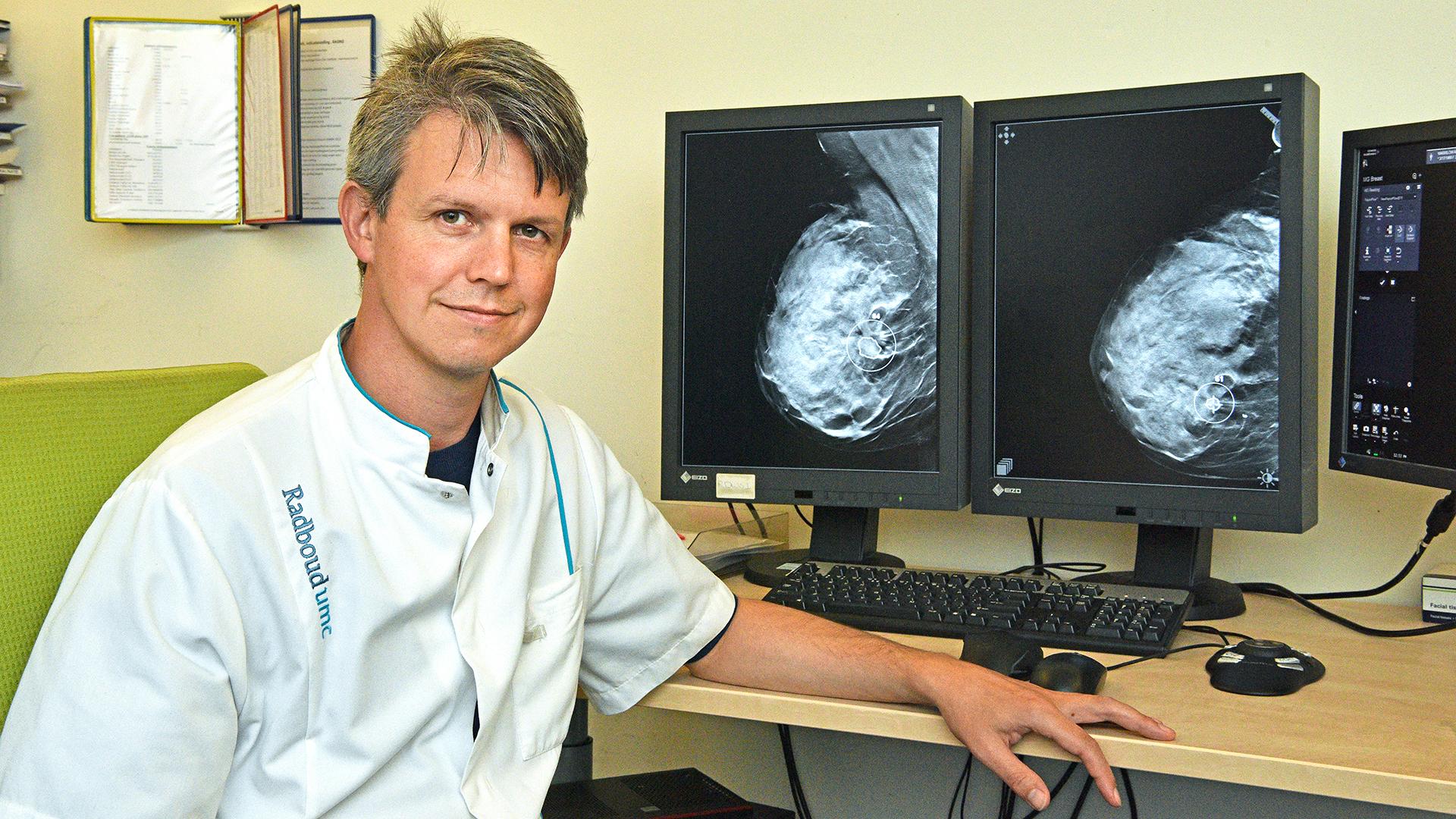
Dr Ritse Mann
Breast cancer screening is fraught with politics creating an inertia that doesn’t really reflect the science around risk, technology, who benefits most and at what cost, a cancer meeting has heard.
Breast and interventional radiologist Dr Ritse Mann from the Radboud UMC in Nijmegen, the Netherlands, told the Australasian International Breast Congress (AIBC) in Brisbane that his country’s parliament had voted to adopt breast MR screening in women with intermediate risk due to mammographically dense breasts but implementation was still on hold.
“And that’s due to COVID and all the other issues at the moment that are deemed more important than improving breast screening,” he told the limbic.
Given the Netherlands has one of the highest rates of breast cancer in the world, second only to its neighbour Belgium, he said he expects and would like to see progress.
“We don’t do these studies for nothing,” he said.
“Women are actually asking for it and if they come to our hospital and are asking for it, I don’t say no. What we are currently doing is integrating it into the clinical guidelines [link here] which forces the insurance companies to pay for it.”
Dr Mann, an executive board member of the European Society of Breast Imaging (EUSOBI), told the Congress that the evidence came from the DENSE trial [link here] which compared mammography plus MRI with mammography alone in a cohort of over 40,000 women.
The study showed that supplemental screening with MRI in women with extremely dense breast tissue significantly reduced the rate of interval cancers compared to mammography alone.
In a secondary outcome, supplemental MRI was associated with an additional cancer-detection rate of 16.5 per 1000 screenings.
As well, there was evidence that breast MR in this group was cost effective. [link here]
Dr Mann said the EUSOBI guidelines were very clear that women 50-70 years should be advised if they have very dense breast tissue and offered MRI at least once every four years, preferably more often.
However he acknowledged that the Australian context might be different and baseline investment appeared to be high.
“In a country where MR is really sparse, saying you need to screen 10% of your population with MR is very difficult.”
Dr Mann said The Netherlands had been ahead of the game in regards to screening for women at high risk of breast cancer due to pathogenic gene mutations including BRCA1/2.
“Since 2007 there have been international recommendations from the American Cancer Society and this was already in place in The Netherlands at that time.”
“The only thing we did there was drop mammography down. That started at age 30 annually, MRI at age 25. Now we do mammography from age 40 every two years because all we catch is some additional DCIS.”
He said population screening of women 50-75 with biennial mammography should start earlier – from 45 years – however changing that was not something which would be easily achieved.
However he said the use of artificial intelligence (AI) will improve both risk prediction and classification.
“For the bulk of what we do, for mammography screening, this will become the standard way of reading the image. I guess at first, in cooperation with one radiologist double reading or filtering out the ones that really have a very low risk of harbouring cancer…to reduce workload and improve recalls,” he said.
“The other side of it is that on the mammogram we can define a group that AI says the likelihood of developing cancer in the coming years is very low – so please come back in about 5 years. AI can do it much better than classic risk factors.”
He said the future will be that all breast screening including contrast mammography and breast MR will have AI developed for it.
“For a radiologist, AI will completely change the work. Half the screening will disappear but you will engage a lot more with the patients that are recalled.”